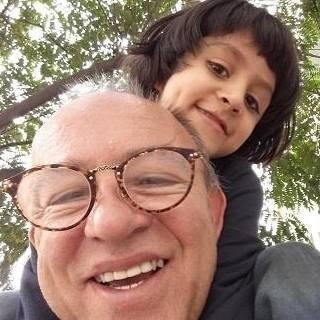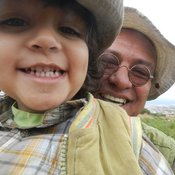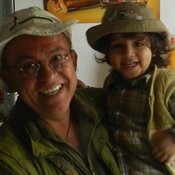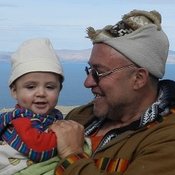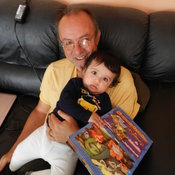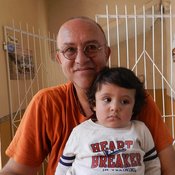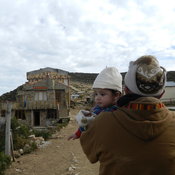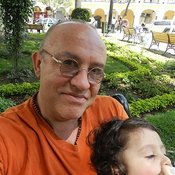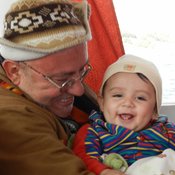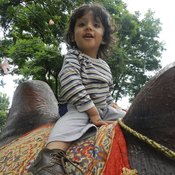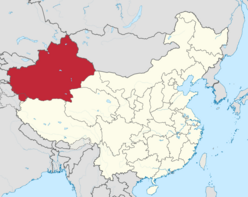 The PHD Program in Social Work with a focus on Social Policy and Administration at XXXX University is my first choice because I feel that I am the best fit with XXXX. I live and work in XXXX and your program is the most international and interdisciplinary Social Work doctoral program in the city if not the world. I look forward to contributing to the diversity of the Social Work community as a young Uyghur woman raised in a small village in China.
The PHD Program in Social Work with a focus on Social Policy and Administration at XXXX University is my first choice because I feel that I am the best fit with XXXX. I live and work in XXXX and your program is the most international and interdisciplinary Social Work doctoral program in the city if not the world. I look forward to contributing to the diversity of the Social Work community as a young Uyghur woman raised in a small village in China.
The Uyghur are one of the most oppressed ethnic minority groups in the world, exacerbated by the fact that they are China’s only major ethnic group that is mostly Muslim. This has to do with the fact that we have much in common in our ethnic and linguistic heritage with peoples of Central Asia. This is why in addition to Uyghur, English, and Mandarin Chinese, I am also a near-native speaker of Uzbek. My special area of interest is my profound concern for the human rights and well being of Uyghur girls, suffering under layers of oppression rooted in our history and greatly exacerbated by the oppression that comes from top down, as a result of having been conquered and ruled by China until today.
As a Social Work professional, I want very much to contribute to improving social and educational support systems for disadvantaged children, adding new resources and creating new opportunities for disadvantaged children, especially for girls in the Xinjang Uyghur Autonomous Region in the People’s Republic of China, where most Uyghur people live. As a PHD student in Columbia’s Social Work Program, I would be especially eager for the fullest immersion experience possible in the area of quantitative research methods, as I see this as especially crucial to my future research. I would benefit greatly from the Proseminar as I strive to better understand the complexities of socioeconomic inequality. I have read the work of Dr. XXXXl and it would be a special honor to study under her guidance with respect to the complex relationships between child and family well-being, on the one hand, and poverty and inequality on the other. Receiving instruction and guidance from Dr. Qin Gao would also help me enormously. I have studied research methods and statistics intensively, enough so far to be confident that this is the area in which I want to make my professional mark. I can think of no better way to become an expert on social policy than by completing XXXX’s Doctoral Program in Social Work.
I was born and raised in a small village in the Xinjang Uyghur Autonomous Region in northwestern China. When I was fifteen years old, having done well on an exam, I was uprooted and, with little preparation, sent to the other side of the country to attend a high school in a city in southeast China, as part of a special education program for gifted minority students. The spacious classrooms all contained big-screen computers, and I asked myself why our government didn’t provide similarly large and well-equipped classrooms for my village so I would not have had to leave my family? If we were to have similar classrooms in my village, I would not have had to spend 72 hours – the cost of airfare prohibitive - on a train to go to high school.
I want to dedicated my life to militancy for the right to an adequate and equal education worldwide, especially in China and particularly for my people, the Uyghurs. My burning desire to help my oppressed people led me to earn my Bachelor’s Degree in Social Work while still in China. Next, I came to the USA and earned my MPA Degree at XXXX University. Throughout the course of my MPA studies, especially when I delved into issues of ethnic diversity and economic inequality, I found myself thinking about the children that I had grown up with in my village, most particularly those who dropped out of school because they couldn’t pay the book fee.
My current position, as a Care Coordinator at NYC Health & Hospitals, provides me with the privilege of collaborating daily with residents, representatives of community organizations, students, parents, school staff, unions, and other public and private agencies. At the same time, I participate in the planning, organization, and implementation of programs to increase community participation in our programs. Most of my efforts are geared to the support of low-income families of many different races and ethnicities. I have learned a great deal about how social policies play out on the ground; and I have been able to apply much of the knowledge I acquired and cultivated at CMU. Since I have been at my job, I have participated in a variety of training sessions and programs and have become certified in several areas including Mental Health First Aid. Now, I am still starving for more education and extremely excited about the prospect of studying toward the doctoral degree in Social Work at Columbia. I am convinced that China has much to learn from America, particularly with respect to the great value of student-centered educational systems.
Student-centered pedagogy is needed in China in order to cultivate critical and independent thinking, the foundation of future success at every level, intellectual and cultural as well as economic. I also see this as having great potential for the mitigation of gender inequalities, grounded in the empowerment of girls. I was raised in great part by my grandmother who I was especially close to; she never had a chance to go to school, which grieved her for the rest of her life. My grandma always keeps telling me to keep studying until I got the highest degree, and, in particular, to educate girls because they are discriminated against.
I have been challenged by many obstacles during the course of my pursuit of the optimal education, and each hurdle has left me even more highly motivated than before to earn my PHD in Social Work. Leaving home when I was fifteen years old and returning for only one month each year was terrifying and heart-rending, and detrimental to my academic success. I was fortified by the suffering, however, and became more independent as time wore on. Most importantly, this experience left me hungry to do research in the area of child education and public policies. I witnessed numerous cases of chronic depression among my classmates because they missed their families. At some point, I look forward to publishing on the way in which this burden is especially difficult for children of minority communities like me. The lack of family support for children provokes mental health issues. Personally, I also had a very hard time upon occasion, especially when I got a lower score than I had hoped for some of my classes, and my mom was not there to hug and encourage me.
During my Master’s program, I focused on developing research skills that would help me with policy and administration, assisting several professors by collecting data from the World Bank and the U.S. Bureau of Labor Statistics and by searching for relevant scholarly articles. These professors taught me many valuable research methods, including how to analyze data with SPSS software, how to design survey questions, and how to interview participants. To improve my teaching and communication skills, I participated in an eighteen-month teaching assistance program in the Political Science and Public Administration Department, working with Dr. Thomas Greitens, Dr. XXXX and Dr. XXXX. I helped them grade papers, proctor exams, guide class discussions, and hold office hours. I was a teaching assistant for the courses “Nonprofit Management” and “Introduction to Empirical Methods of Political Research.” I also covered a Research Methodology class when my professor went to a conference, teaching the students how to use SPSS to analyze data. Many students came to my office to ask me questions, and I strengthened my ability to convey information clearly through those conversations.
My Master’s Thesis, which necessitated extensive quantitative research, examined motivation and job performance among public service workers, based on data from both the public and private sectors regarding employee injury and illness. I demonstrated that employees in public sectors have a higher risk of getting injured than employees in private sectors. In order to make sure that employees can work safely in public sectors, improved policies for safeguarding their health and safety must be implemented. For my doctorate, I hope to use the skills and knowledge I have gained in both my Master’s program and my current professional position to examine China’s social policies regarding minority children. Over the years, I have visited several regions in China and have witnessed firsthand the vast economic inequalities between different areas, especially between Xinjiang in the northwest, China’s largest administrative region, and other regions of China. Xinjiang lags far behind these other regions in terms of both prosperity and education, despite the fact that it holds vast natural resources. Its population includes forty-seven different minorities, and the Chinese government pays little to no attention to our educational system.
My primary research aims are to assess and find improvements for the democratic governance of Xinjiang and other minority communities in China, with respect to education as well as more generally speaking. Most specifically, I hope to analyze the range of social policies needed to guarantee education for poor children and to decrease economic inequality between cities and villages. Thus far, I have devised a cultural competency plan for my hometown and analyzed its democratic governance. I have also conducted a case analysis on transparency and accountability in public sectors, and I have delved into the literature on democratic governance, seeking more information about policies focusing on child education, family well-being, poverty, and economic inequality.
My short-term goal is use my experience and skillset at XXXX University, and improve my research skills. My long-term goal is become a university professor. Thank you very much for your consideration of my application.

